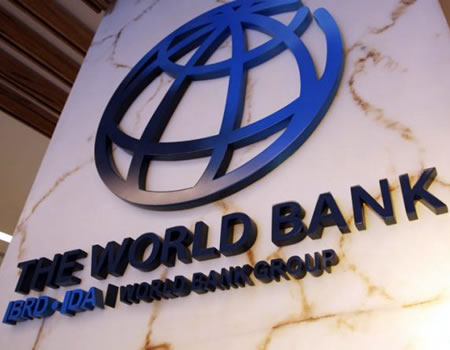In its latest Nigeria Development Update, December 2023 edition, titled ‘Turning The Corner (from reforms and renewed hope, to results)’, the World Bank has raised concerns over the lack of transparency in the financial reporting of the Nigeria National Petroleum Corporation Limited (NNPCL) following the removal of fuel subsidies. The Washington-based institution highlighted the need for clarity on the financial gains from subsidy removal and the impact on federation revenues.
The World Bank pointed out that while nominal oil revenue gains have been visible since June, primarily attributed to exchange rate gains due to the Naira’s depreciation, transparency remains elusive, especially concerning the financial gains of the NNPCL from subsidy removal, ongoing subsidy arrears deductions, and the broader impact on federation revenues.
The Minister of Finance and Coordinating Minister of Economy, Wale Edun, has responded to these concerns by expressing the government’s readiness to scrutinize the revenue flow from the NNPCL. The World Bank emphasized the necessity of understanding oil revenues comprehensively, including the fiscal benefits resulting from Premium Motor Spirit (PMS) subsidy reforms.
The Bretton Woods institution noted that the gains in net oil revenue of the federation were lower than anticipated, considering the removal of fuel subsidies, which were estimated to cost the federation about N380 billion monthly. The report stated that the federation account should have recorded an increase in net oil revenues following the subsidy removal, but the actual gains have been primarily attributed to exchange rate fluctuations.
The World Bank further suggested that the reform of fuel subsidies should enable the NNPCL to settle its arrears and contribute fully to the federation’s share of costs in joint venture operations, ultimately leading to a gradual increase in oil production over time.
During the presentation of the report, Coordinating Minister of the Economy, Edun, acknowledged the financial relief brought about by the subsidy removal but also highlighted challenges such as debt funding, fiscal deficits, and the need for increased scrutiny on oil revenue.
The World Bank’s Lead Economist for Nigeria, Alex Sienaert, raised concerns about the partial return of the subsidy, indicating that petrol prices in the country are not fully reflecting market conditions. He suggested that the market price of petrol should be around N750/litre, emphasizing the importance of transparency in the pricing mechanism and ensuring that revenue gains materialize.
While the removal of fuel subsidies was announced by President Bola Tinubu on May 29, concerns have been raised about the dividends not reaching the average Nigerian. Former Governor of the Central Bank of Nigeria, Sanusi Lamido Sanusi, criticized the NNPC for lack of transparency, questioning the remittance of dollars to the federation account despite subsidy removal.
The World Bank’s report also highlighted the economic challenges following the removal of fuel subsidies, including a 163% increase in retail fuel prices, a 41% depreciation of the Naira against the US dollar in the official market, and a 30% depreciation in the parallel market. The bank, however, believes that the implemented reforms will gradually reverse the increases in poverty seen in recent years from 2024 onward.
In conclusion, the World Bank’s report emphasizes the importance of transparency in NNPC’s financial reporting and the need for effective measures to ensure that the benefits of subsidy removal are realized for the overall economic growth and development of Nigeria.










